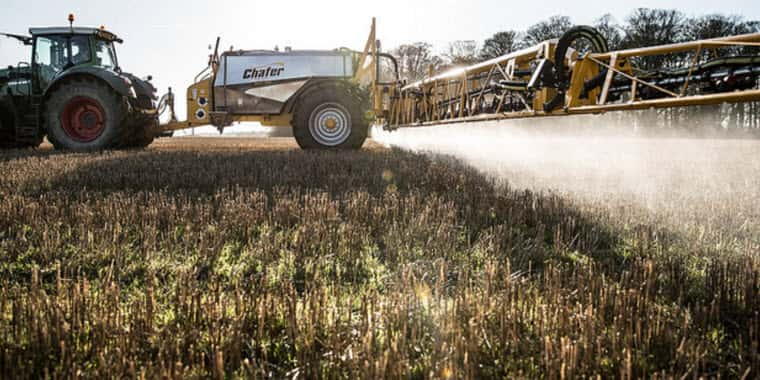BOZEMAN — Herbicide-resistant weeds are a critical but often overlooked issue facing modern agriculture, according to Montana State University researcher William Dyer. Thanks to a new grant from the U.S. Department of Agriculture, Dyer and research scientist Barbara Keith will continue decades of research into exactly how weeds develop that resistance.
Herbicides are used to combat weeds without killing crops, as opposed to pesticides, which target insects, fungi and other non-plant threats to crops. Herbicides represent more than 75% of all pest-mitigating chemicals used in conventional agriculture, said Dyer, a professor in the Department of Plant Sciences and Plant Pathology in MSU’s College of Agriculture. However, low doses of herbicide can cause a weed to develop resistance to that treatment. Dyer’s research, in collaboration with Keith of MSU’s Department of Land Resources and Environmental Sciences, focuses on herbicide-resistant wild oats, which plague producers of grains such as barley by competing with crop plants for resources like water and fertilizer.
“When a plant gets sprayed with an herbicide or if it’s under stress, it does the same kinds of things that every organism does, including humans,” said Dyer. “It turns on some genetic pathways that allow it to deal with whatever the stress is. The plants that we’re working on are permanently ready to respond to stress. They have these pathways turned on all the time, and so anytime a new stressor comes along, the plant is already ready to deal with it.”
Dyer’s work began in 1993 when farmers in north-central Montana’s Golden Triangle noticed that two different wild oat herbicides had stopped working. Laboratory studies revealed that the resistant plants could pump the chemicals out of their cells, the same mechanism used by drug-resistant bacteria in humans. By 2018, wild oats were found that resist all of the most common herbicides used on them.
Dyer and Keith recently received $455,000 from the USDA to study how resistance developed and how it operates in samples of wild oats collected over 25 years. The work combines genetics, molecular biology and biochemistry to pinpoint the physiological and biological changes.
“We can understand how resistance develops over time in an evolutionary lineage, providing us with a unique opportunity to make some very important and fundamental discoveries with this funding,” said Dyer. “If we can learn how these weeds have turned on these stress response pathways, maybe we could transfer those systems into crop plants and make them more resistant to stresses as well.”
The samples Dyer and Keith work with were collected in Montana malt barley fields. A high value crop, malt barley’s value declines when wild oats can’t be removed, as the presence of weeds can alter the flavor of the malt. This poses a challenge for growers, who may ultimately only have one remaining option: to grow another crop altogether.
Herbicide-resistant wild oats are different from non-resistant oats in several other ways, said Dyer. They release a different pattern of volatile compounds, chemicals all plants use as a form of communication in reaction to pest or environmental stress. Essentially, they send out stress alarm signals to other plants.
“We believe that this trait is part of a generalized defense signaling strategy for many kinds of stress, only one of which is herbicide resistance,” said Keith. “Resistant plants are also more tolerant to heat stress. And since the molecular details of heat shock response are well-understood, we can use a number of powerful tools to investigate how resistance to herbicides and heat stress are related.”
As their work continues, Dyer and Keith will also seek to develop new strategies for improving crop health under stressful conditions. Dyer recommends using herbicides sparingly, which can help slow down the natural selection for resistant weeds. With this research, he and Keith hope to provide growers with the information necessary to make their own informed decisions about herbicide use.
“The simplest answer to avoiding herbicide resistance is to not use herbicides unless you really have to,” said Dyer. “Herbicides are tools that work very well, but if you use them all the time, you will select for resistant weeds. To avoid that, you have to use them the way we use antibiotics: only when you really need them.”
###
MSU News


